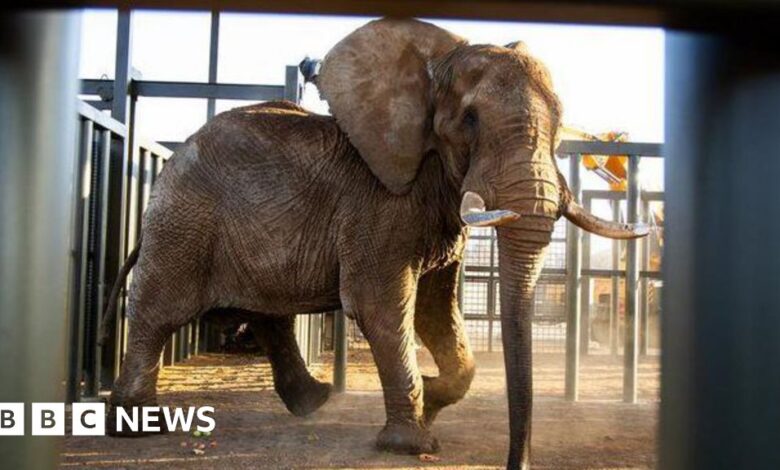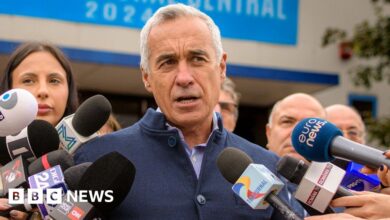South African zoo’s last elephant Charlie released after 40 years

The last elephant at South Africa’s national zoo has been released into the wild after 40 years in captivity.
This elephant named Charlie was captured in 1984 in Zimbabwe’s Hwange National Park when he was just two years old.
He was taken to the Boswell Wilkie Circus in South Africa and trained to perform magic tricks. In the early 2000s, he was moved to the country’s national zoo.
In recent years, animal rights groups have pushed for the release of elephants out of concern for their health.
On Tuesday, the EMS Foundation, a wildlife rights organization, announced that after a “thrilling four-hour journey to freedom,” the elephant had arrived at his new home at Shambala Private Reserve in Limpopo province.
The report said the “historic event” came after years of negotiations with the South African government, after the EMS Foundation and partners provided scientific evidence that elephants were suffering in zoos.
At the zoo, Charlie the elephant is said to have witnessed the deaths of four other elephants, including his own calf, which was less than a month old at the time.
In 2019, concerns were raised that the elephant was showing signs of distress commonly seen in captive animals.
The South African National Biodiversity Institute, which runs the zoo, has denied this, saying it is a learned behaviour from years of living in a circus and will never be completely eliminated. The EMS Foundation said this was “incorrect”.
On Tuesday, animal welfare organization Four Paws, which works with the EMS Foundation, said “Charlie’s retirement is a major milestone for him and for better animal welfare in South Africa.”
“Together with our partners, we have worked tirelessly to end Charlie’s loneliness and help him thrive in his new species-appropriate home,” said Josef Pfabigan, CEO of Four Paws.
The elephants’ new home is a 10,000-hectare sanctuary with a thriving elephant population, known for its ability to successfully reintegrate wild animals back into the wild.
While there, Charlie will be closely monitored by veterinarians and behaviorists.
“Our dream is that Charlie will learn to be the elephant he has always wanted to be, at his own pace, and will soon meet and integrate into the existing elephant community in Shambala,” the EMS Foundation said.
Dr Amir Khalil, the veterinarian leading the elephant’s transfer, told the BBC that although there were still signs of ill-treatment in captivity, “there is always a chance of recovery”.
Asked how Charlie would adapt to his new environment, he said there were positive signs that he would adapt and that Charlie was “very happy to hear from other elephants from afar” with whom he had begun to communicate.
Dr Khalil said it would take time to prepare the elephant for independence, but “we must not forget that Charlie was born in the wild. He has lived almost two years with his mother in freedom”.
He said the elephant is being rehabilitated and fed, and they plan to release it to a larger area in the coming months.
“We believe that step by step, he will get used to all these new experiences.”
EMS Foundation director Michele Pickover told AFP news agency there were also three elephants at Johannesburg Zoo.
“We are suing Johannesburg over those issues,” she said.
According to South African parks agency SANparks, South Africa has more than 25,000 wild elephants.
African elephants face a threat from poachers, with thousands illegally killed each year for their ivory. They also face habitat loss due to the expansion of human settlements.




